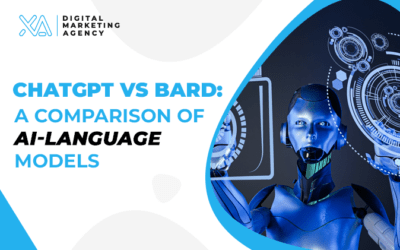
Introduction: AI is Transforming the fintech industry
The fintech industry has experienced remarkable progress in recent times, thanks to the integration of Artificial Intelligence (AI) which has played a crucial role in this transformative journey. The blending of AI and fintech has led to remarkable growth, introducing creative solutions for both businesses and consumers. In this article, we delve into the significant influence of AI across different aspects of the fintech sector.
What is fintech?
AI is Transforming the fintech industry is a new technology that has made strands of improvements in recent times. It has seen massive business growth in a concise period. This is testimony to many real-life use applications having an amalgamation of AI and Fintech into this. It aims to make life easier for business owners and consumers to better manage their financial operations, and improve and fasten processes by automation.
Fintech is an abbreviation of “financial technology” which includes specialized software and algorithms that can be accessed using computers and smartphones.
Some examples of AI enhancing Fintech includes, when you transfer money using UPI apps through your cellphone or manage your cryptocurrencies online, and invest in stocks through an online broker.
Types of fintech
Fintech has many used applications and an array of types which is mentioned as follows:
-
- Digital banking
- Payment processing
- Investment management
- Peer-to-peer lending
- Cryptocurrency and blockchain technology
- Insurance technology
- Personal finance management
- Wealth management
- Crowd-funding
Fraud Detection and Security
Fraud detection and better security as become critical to building trust for customers to use any given platform online. AI is particularly effective for this, as it analyses huge amounts of data to find anomalies and suspicious behavior that could be threats to security and lead to preventing loan fraud, theft, and money laundering.
Furthermore, A.I. safeguards against unauthorized and anonymous user access to fraud detection using advanced methods.
These, are obviously important features used in the financial services industry against breaches.
Customer Service
AI helps in customer service and better customer experience as it can provide 24/7 customer support by AI-powered chatbots for answering basic types of customer-related questions, this also removes the excess workload of human service representatives.
AI chatbots reduce waiting times and setting up accounts gets easier by providing guidance on available products.
It is believed customer experience should be contextual and tailored to individual and also personalized. Breakthroughs in the field of AI are helping support this goal.
Personalized financial services
Artificial intelligence has made remarkable improvements in the field of personalisation of customers according to his/her behaviour. Using speech and voice characteristics, customer behaviour could be predicted and AI models can accurately identify this.
Similarly, AI can provide and determine credit worthy-ness of users based on loan, and credit systems. Financial services could be pre-approved and customised financial advice could also be served. This will lead to gaining the trust of customers.
AI in Risk Assessment and Investment Management
A Risk assessment or investment management can greatly benefit from the help of AI as it can analyse trends and insights about the future. It can provide risk assessment for credit risk by reducing default risk and improving loan approvals. AI can improve all of these. Above all, it has become synonymous with productivity and better efficiencies at a reduced cost. This is made possible because of AI‘s ability to process huge volumes of unstructured data at a higher rate of speed and lower degrees of human involvement. The advantages include superior forecasting accuracy, optimized variable selection processes, richer data segmentation, credit risk modeling, and efficient fraud detection.
Other important and note-worthy benefits include:
-
- Superior forecasting accuracy
- Optimised variable selection process
- Richer data segmentation
- Credit risk modeling
- Fraud detection
Conclusion
Fintech has seen a significant boom in recent years. These trends combined with AI and Machine Learning are witnessing powerful implications and have a very good possibility to change the landscape for technology. With changing times, even consumer behaviour and acceptance is changing and breakthrough is happening. Its used benefits could be seen in cybersecurity, fraud prevention, Digital banking, mobile banking, and Blockchain.



0 Comments